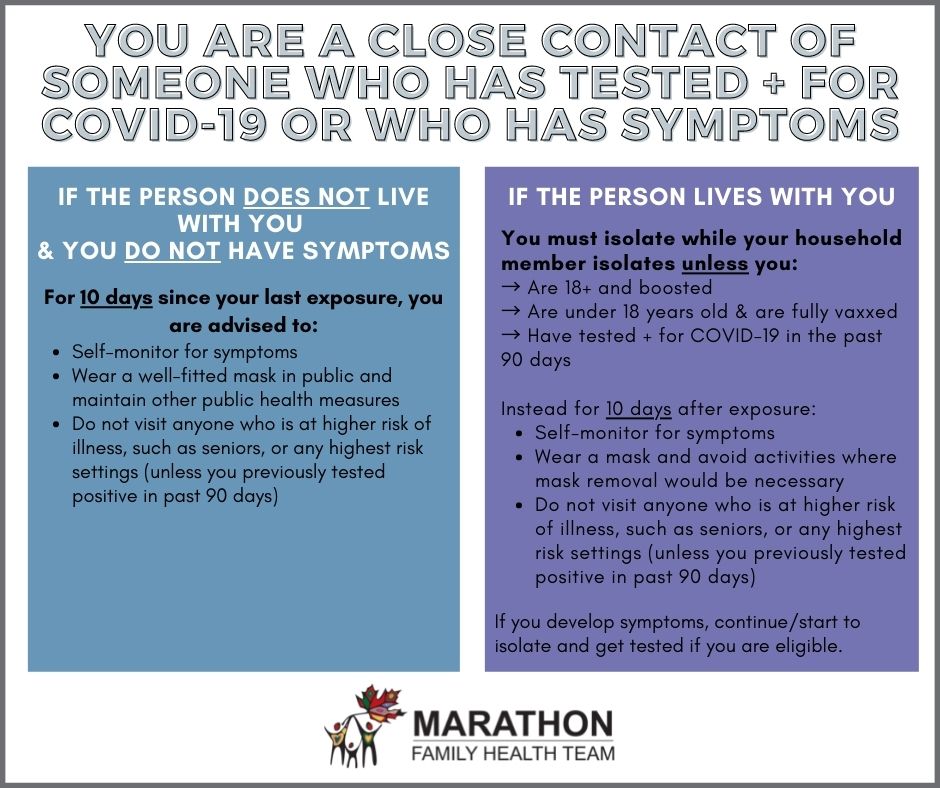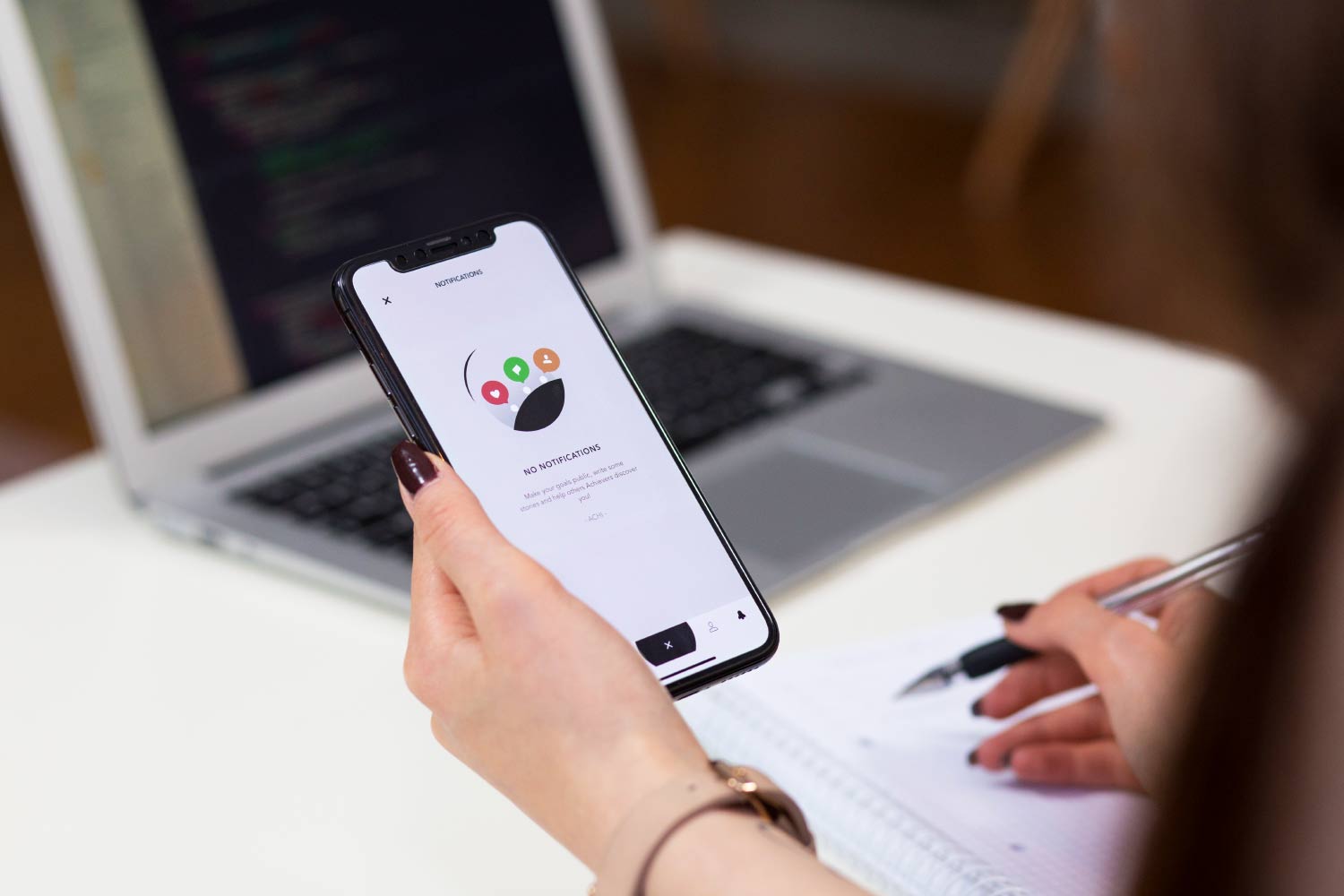If you are concerned that you have COVID-19
Due to the rapidly spreading and highly infectious Omicon variant, it is highly likely that you are infected with COVID-19 if you begin to experience any symptoms related to the virus. If you have any of the symptoms listed below (even if mild), you must self-isolate immediately. You do not need to get tested for COVID-19, unless otherwise recommended by public health or your employer.
Symptoms include:
- fever or chills
- cough
- shortness of breath
- decreased or loss of taste or smell
two or more of:
- runny nose or nasal congestion
- headache
- extreme fatigue
- sore throat
- muscle aches or joint pain
- gastrointestinal symptoms (such as vomiting or diarrhea)
Although COVID-19 testing is no longer recommended for everyone, it remains important to isolate as soon as you start to experience any symptoms.
If you are fully vaccinated OR under 12 years of age, you must isolate for 5 days.
You can end isolation after 5 days only if your symptoms have improved for at least 24 hours, and all public health and safety measures are followed. If your symptoms are not in the list above, stay home until you feel better for at least 24 hours (or 48 hours if you experience gastrointestinal symptoms).
If you are not fully vaccinated, immunocompromised, or live in a highest risk setting you must isolate for 10 days.
If you’ve been exposed to someone who has tested positive for COVID-19
If you do not live with the person who tested positive or has symptoms, you are advised to:
- Self-monitor for symptoms for 10 days since you last interacted with the positive case
- Maintain masking, physical distancing and adherence to all other public health measures for 10 days after exposure if leaving home
- Not visit any highest risk settings or individuals who may be at higher risk of illness (e.g., seniors) for 10 days from your last exposure.
If you live with the person who tested positive or has symptoms:
You do not need to isolate if one of the following applies to you:
- you have previously tested positive in the last 90 days and do not have symptoms
- you are over 18 years old and have received a COVID-19 booster dose
- you are under 18 years old and are fully vaccinated
Instead for 10 days after exposure:
- self-monitor for symptoms
- wear a mask and avoid activities where mask removal would be necessary
- do not visit anyone who is at higher risk of illness, such as seniors, or any highest risk settings (unless you previously tested positive in past 90 days)
If you do not meet any of the criteria above, you must isolate while the person with symptoms/positive test result isolates (or for 10 days if you are immunocompromised).





